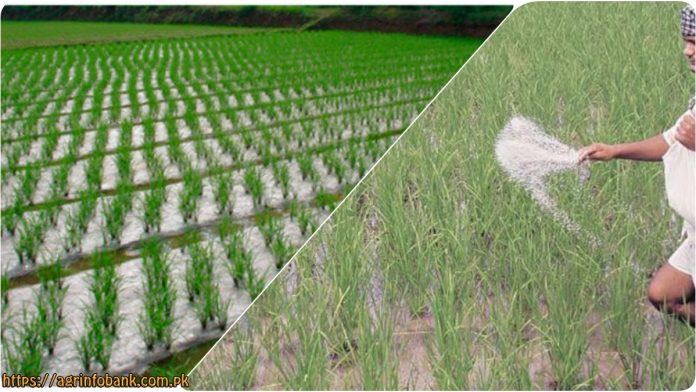Title: Understanding the Importance of Fertilizers at the Rice Nursery Stage
Introduction:
Rice is one of the most essential food crops globally, providing sustenance to a significant portion of the world’s population. The successful cultivation of rice begins with the careful management of the crop at its earliest stages, particularly the rice nursery stage. During this critical period, the rice plants require proper nutrition to ensure healthy growth, vigor, and optimal transplanting into the main field. Fertilizers play a crucial role in supplying essential nutrients to the rice seedlings, enabling them to develop robust root systems and establish a strong foundation for future growth. This article delves into the significance of fertilizers at the rice nursery stage and provides valuable insights into their appropriate application.
Nutritional Requirements of Rice Seedlings:
Rice seedlings have specific nutritional needs that must be met for their optimal growth and development. The primary nutrients required by rice plants are nitrogen (N), phosphorus (P), and potassium (K), commonly known as NPK. In addition to these macronutrients, rice plants also require secondary nutrients such as calcium (Ca), magnesium (Mg), and sulfur (S), as well as micronutrients like iron (Fe), manganese (Mn), zinc (Zn), copper (Cu), molybdenum (Mo), and boron (B) in smaller quantities. These nutrients are essential for various physiological processes within the plants, including photosynthesis, enzyme activation, and overall growth.
Importance of Fertilizers at the Rice Nursery Stage:
- Seedling Vigor and Root Development: Fertilizers provide the necessary nutrients to enhance seedling vigor, leading to healthy and robust plants. Adequate nutrition at the nursery stage helps promote strong root development, enabling the seedlings to efficiently absorb water and nutrients from the soil. Well-developed root systems ensure better nutrient uptake, enhance tolerance to stress, and contribute to successful transplanting.
- Biomass Production: Proper application of fertilizers during the nursery stage significantly influences biomass production in rice seedlings. Nitrogen, in particular, stimulates vegetative growth and leaf production, contributing to the overall biomass accumulation of the plants. Adequate phosphorus promotes strong root growth, while potassium enhances disease resistance and overall plant health.
- Transplanting Success: The quality of rice seedlings is a crucial factor in achieving successful transplantation. Well-nourished seedlings with strong root systems have a higher chance of survival after being transplanted into the main field. Fertilizers play a vital role in ensuring the development of sturdy seedlings that can adapt quickly to the new environment.
- Yield Potential: The rice nursery stage sets the stage for subsequent growth and development. Proper nutrition during this stage directly affects the yield potential of the crop. By providing the necessary nutrients in balanced quantities, fertilizers contribute to higher grain production, improved grain quality, and increased overall productivity.
Recommended Fertilizer Application:
- Soil Testing: Conducting a soil test before nursery preparation is essential to determine the nutrient status of the soil. This analysis helps identify any nutrient deficiencies or imbalances and guides the appropriate fertilizer application.
- Organic and Inorganic Fertilizers: A combination of organic and inorganic fertilizers is generally recommended for rice nursery stages. Organic fertilizers, such as compost or well-rotted farmyard manure, provide slow-release nutrients and improve soil structure. Inorganic fertilizers, such as urea, single superphosphate (SSP), and muriate of potash (MOP), can be used to supplement specific nutrient requirements.
- Fertilizer Ratios: The recommended fertilizer ratio for rice nursery stages is generally 1:1:1 for NPK. However, the exact ratio may vary depending on soil conditions, regional practices, and the nutrient content determined by soil testing.
- Application Timing: Fertilizers should be applied during the nursery bed preparation, preferably a few days before sowing the seeds. Applying fertilizers too close to seedling emergence may result in seedling burn or damage.
Conclusion:
Fertilizers play a critical role in ensuring the healthy development of rice seedlings during the nursery stage. By providing essential nutrients, fertilizers contribute to vigorous growth, robust root systems, and successful transplanting into the main field. Proper application of fertilizers at the rice nursery stage sets the foundation for high-yielding and healthy rice crops. However, it is essential to consider soil conditions, conduct soil tests, and follow recommended fertilizer ratios to optimize nutrient uptake and minimize environmental impact. With careful attention to fertilizer management, farmers can maximize rice production and contribute to global food security.


